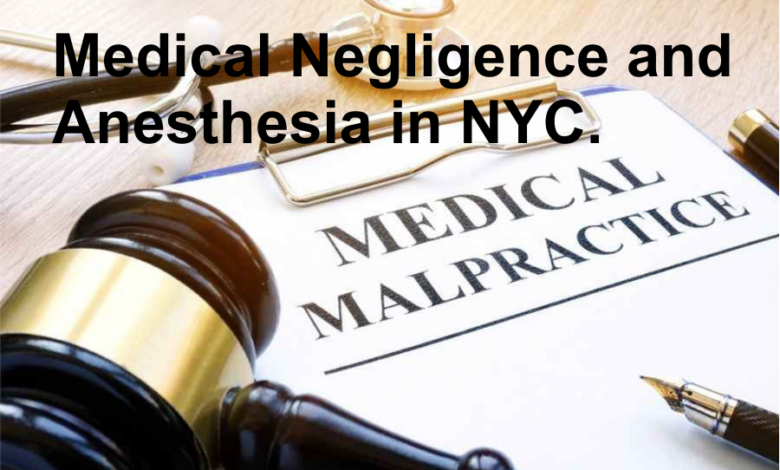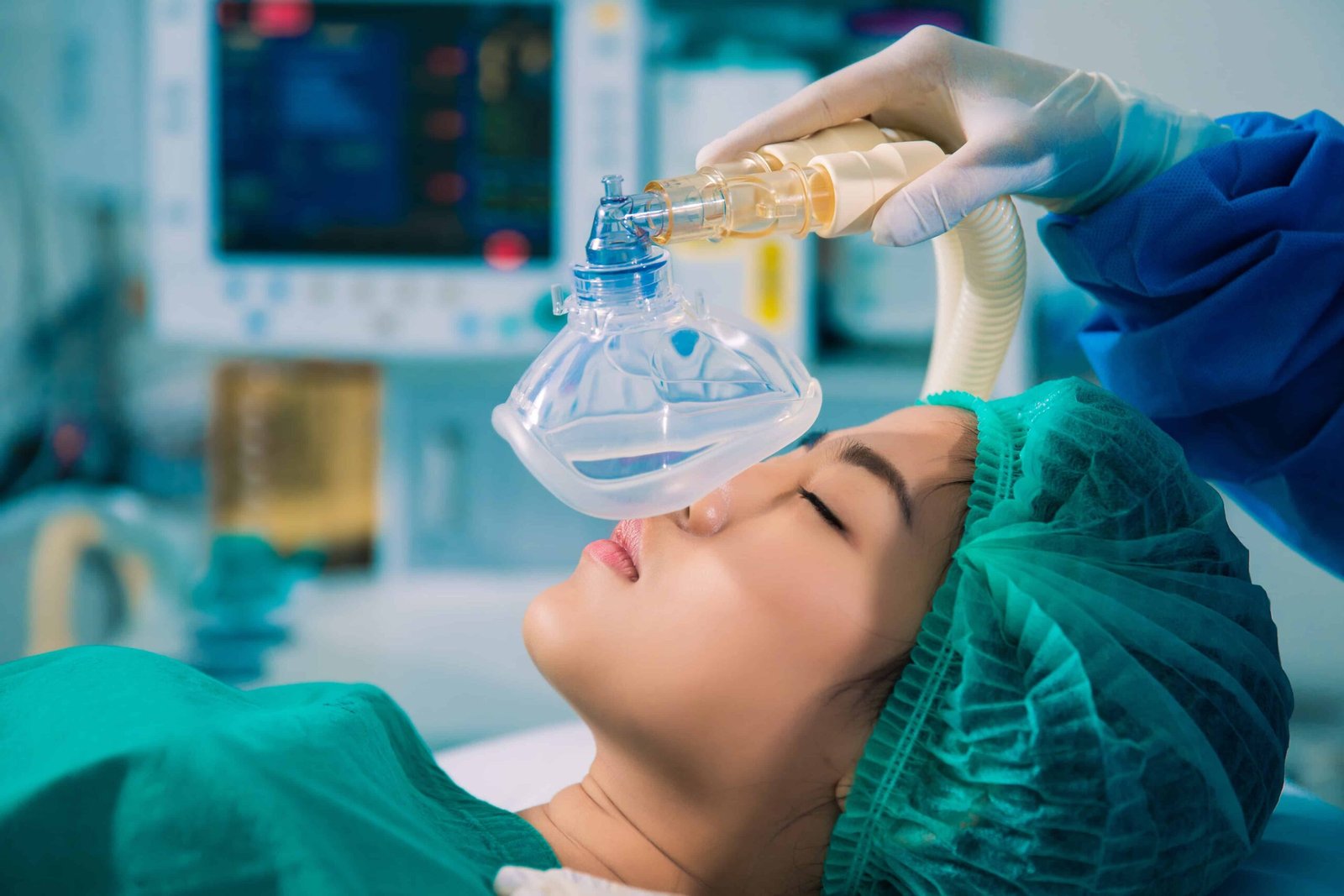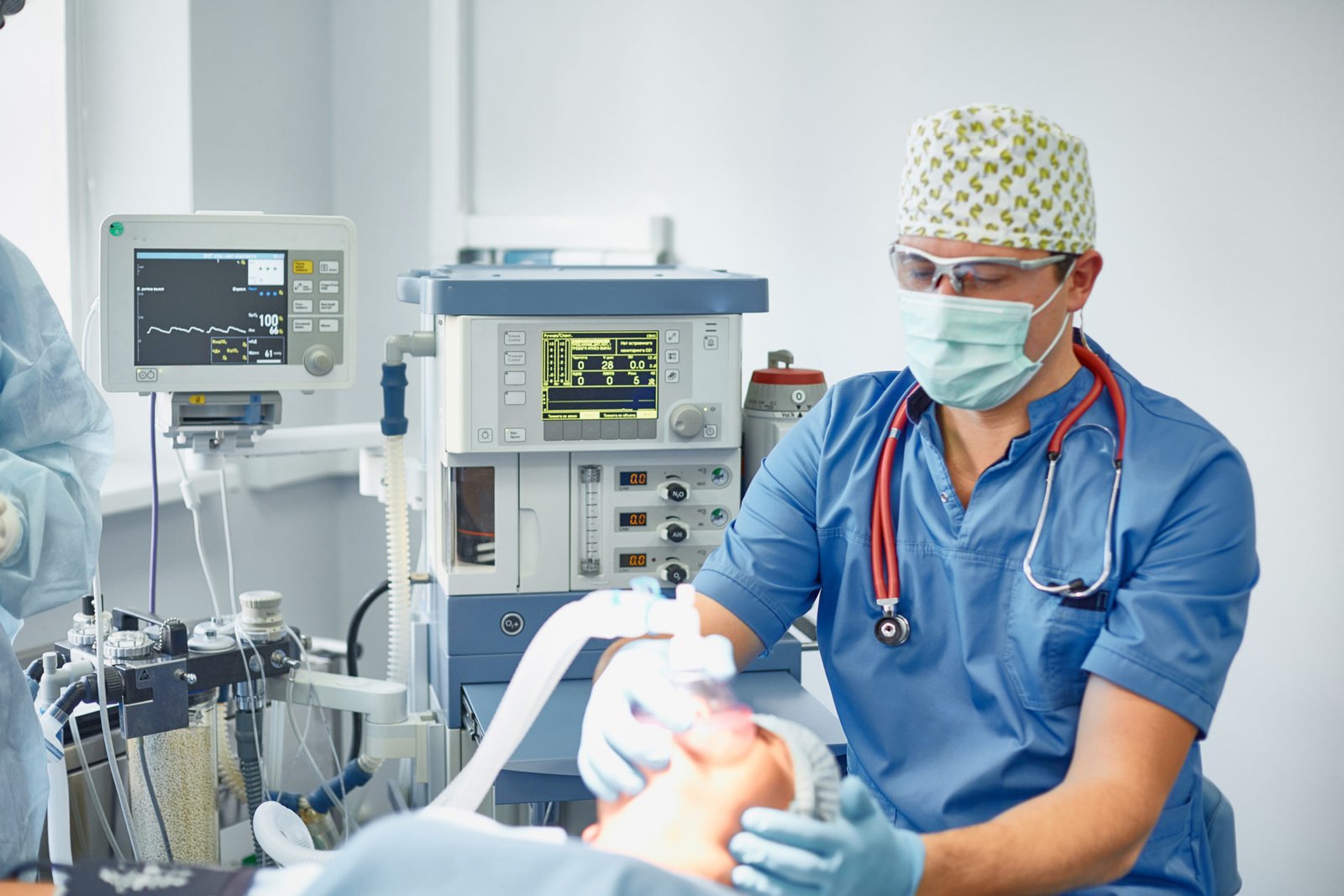Medical Negligence and Anesthesia in NYC.

Medical Negligence and Anesthesia, When it comes to medical procedures, anesthesia is an essential component that helps patients undergo pain-free surgical interventions. However, the use of anesthesia also comes with a potential risk of medical negligence, which can have catastrophic consequences for patients. In New York City (NYC), anesthesia-related medical malpractice cases are relatively common, highlighting the need for awareness of this issue. This article will discuss the risks, causes, and legal remedies associated with anesthesia-related medical negligence in NYC.
Read More: T-Bone Car Accident in NYC, Who is Responsible?
Understanding Anesthesia and Its Risks
Anesthesia is a medical process that involves using drugs to induce a state of unconsciousness or partial unconsciousness, which is necessary to perform surgical procedures without causing pain or distress to the patient. While anesthesia is generally considered safe, it is not without risks. Some of the potential risks associated with anesthesia include:

Medical Negligence and Anesthesia, Adverse Reactions
Some patients may have an adverse reaction to anesthesia, which can result in life-threatening complications such as anaphylaxis, respiratory arrest, or cardiac arrest.
Anesthesia Awareness
Medical Negligence and Anesthesia, Anesthesia awareness is a rare but significant risk associated with anesthesia. It occurs when a patient becomes conscious during surgery and is aware of what is happening, but unable to move or communicate.
Postoperative Delirium
Postoperative delirium is a state of confusion and disorientation that can occur after surgery, particularly in older patients. It can lead to a range of adverse outcomes, including longer hospital stays, increased risk of falls, and cognitive decline.
Causes of Anesthesia-Related Medical Negligence
Medical Negligence and Anesthesia, Medical negligence related to anesthesia can occur for several reasons. Some of the most common causes include:

Failure to Obtain Informed Consent
Before administering anesthesia, medical professionals are required to obtain informed consent from the patient or their legal representative. Failure to obtain informed consent can result in medical malpractice claims.
Inadequate Monitoring
Anesthesia requires constant monitoring of the patient’s vital signs, including heart rate, blood pressure, and oxygen saturation. Inadequate monitoring can result in serious complications such as brain damage, cardiac arrest, or death.
Medical Negligence and Anesthesia, Medication Errors
Anesthesia involves administering a combination of drugs in precise dosages. Errors in medication administration can result in serious complications, including organ damage, brain damage, or death.
Misuse of Equipment
Anesthesia equipment requires proper maintenance and calibration to ensure it functions correctly. Misuse or malfunction of equipment can lead to complications such as respiratory arrest or cardiac arrest.
Legal Remedies for Anesthesia-Related Medical Negligence
Medical Negligence and Anesthesia, Victims of medical malpractice related to anesthesia may have legal remedies available to them. Some of the most common legal remedies include:

Medical Malpractice Lawsuits
Medical malpractice lawsuits allow patients or their legal representatives to seek compensation for damages resulting from medical negligence related to anesthesia. Damages may include medical expenses, lost wages, pain and suffering, and other related costs.
Administrative Complaints
Medical Negligence and Anesthesia, Patients or their legal representatives can file administrative complaints with state medical boards or licensing agencies. These complaints can result in disciplinary action against medical professionals, including license suspension or revocation.
Criminal Charges
In cases of gross negligence or intentional harm, medical professionals may face criminal charges such as assault, battery, or manslaughter.
Medical Negligence and Anesthesia, Conclusion
Anesthesia-related medical negligence is a serious issue that can have devastating consequences for patients. By understanding the risks and causes of medical negligence related to anesthesia, patients and medical professionals can work together to prevent these incidents from occurring. If you or a loved one has been a victim of medical malpractice related to anesthesia in NYC, it is essential to seek legal guidance to protect your rights and seek the compensation you deserve.
Read More: Construction Workers Pass away On Average Each Year in NYC?

FAQs
- Certainly, here are a few more frequently asked questions related to anesthesia-related medical negligence in NYC:
- What are some common signs of anesthesia-related medical negligence? Some common signs of anesthesia-related medical negligence may include difficulty breathing, abnormal heart rate, prolonged unconsciousness, postoperative infections, and nerve damage.
- What should I do if I suspect medical negligence related to anesthesia? If you suspect medical negligence related to anesthesia, it is essential to seek immediate medical attention and contact an experienced medical malpractice attorney. A medical malpractice attorney can help you understand your legal options and take the necessary steps to protect your rights.
- How long do I have to file a medical malpractice lawsuit in NYC? In NYC, the statute of limitations for medical malpractice lawsuits is two and a half years from the date of the incident. However, there are some exceptions, so it is best to speak with an attorney as soon as possible to understand your options.
- What should I expect during a medical malpractice lawsuit related to anesthesia? During a medical malpractice lawsuit related to anesthesia, you and your attorney will gather evidence, file the necessary paperwork, and potentially negotiate a settlement or take the case to trial. The process can be complex, so it is essential to work with an experienced medical malpractice attorney who can guide you through the process.
By understanding the risks, causes, and legal remedies related to anesthesia-related medical negligence in NYC, patients and medical professionals can work together to prevent these incidents from occurring and protect patients’ rights in the event of malpractice.











2 Comments